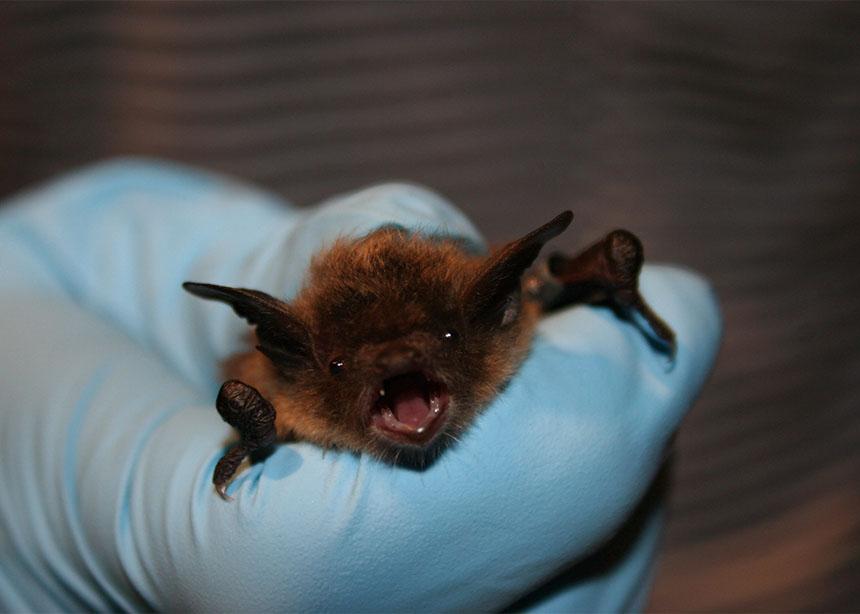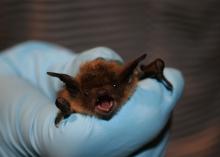Things got a little batty at Mennonite Church Alberta’s Camp Valaqua this summer.
During spring cleaning at the camp, located an hour northwest of Calgary, staff discovered a maternal colony of little brown bats in one of the cabins.
Camp director Jon Olfert and his colleagues first noticed a strange odor and droppings inside cabin four. They initially suspected a mouse infestation, but the truth was revealed when they took down part of a wall to investigate.
“When they pulled off that piece of the wall, bat guano fell out, along with an unfortunately deceased baby bat,” Olfert said.
Further investigation revealed that the little brown bats had nested in the space between the ceiling and the roof of the cabin. Unlike some other species of bats, who raise their young in various nests and bat boxes in a given area, female little brown bats gather in one “maternal colony” for the purposes of giving birth and raising their young together during the spring and summer months. A maternal colony usually has a few dozen mothers and pups.
“Little brown bats are endangered in Canada, where 50 percent of the species’ global range is located,” according to the Nature Conservancy of Canada’s website. “This status is mainly due to an invasive fungus that causes white-nose syndrome. This fungus thrives in cool, moist environments and infects the exposed skin of the muzzle and wings of hibernating bats. It causes bats to use more energy than they can afford during hibernation and to wake up more frequently than healthy bats, usually leading to death.”
After Valaqua staff realized how significant and delicate the colony in cabin four was, they knew they couldn’t move it. “We needed to ensure the health of our population of bats born that year, so we looked at our numbers and decided that we could decommission cabin four for the summer season,” Olfert said.
Olfert dubbed the cabin “the bat cave.” Staff sealed the rest of the cabins to ensure that the only mammals staying in them were the campers.
After raising their young, little brown bats exit the maternal colony in late summer and early fall to find places to hibernate for the winter. Once all the bats are gone, staff will seal the cabin. The camp is hoping to create a structure just for bats that will entice them to set up a colony again next year.
“We really love bats here at Camp Valaqua,” Olfert said. “They’re great at keeping the mosquito population down and are important to the local ecosystem.”
Despite the logistical challenges these furry friends created, Olfert said the experience was a “neat wrinkle” in camp life this summer.
“The slogan for Camp Valaqua is ‘Discovering God in creation,’” he said. “We feel a sense of responsibility to protect and maintain our corner of that creation, and to help kids see that things like this are part of caring for and appreciating creation.”




Add new comment
Canadian Mennonite invites comments and encourages constructive discussion about our content. Actual full names (first and last) are required. Comments are moderated and may be edited. They will not appear online until approved and will be posted during business hours. Some comments may be reproduced in print.